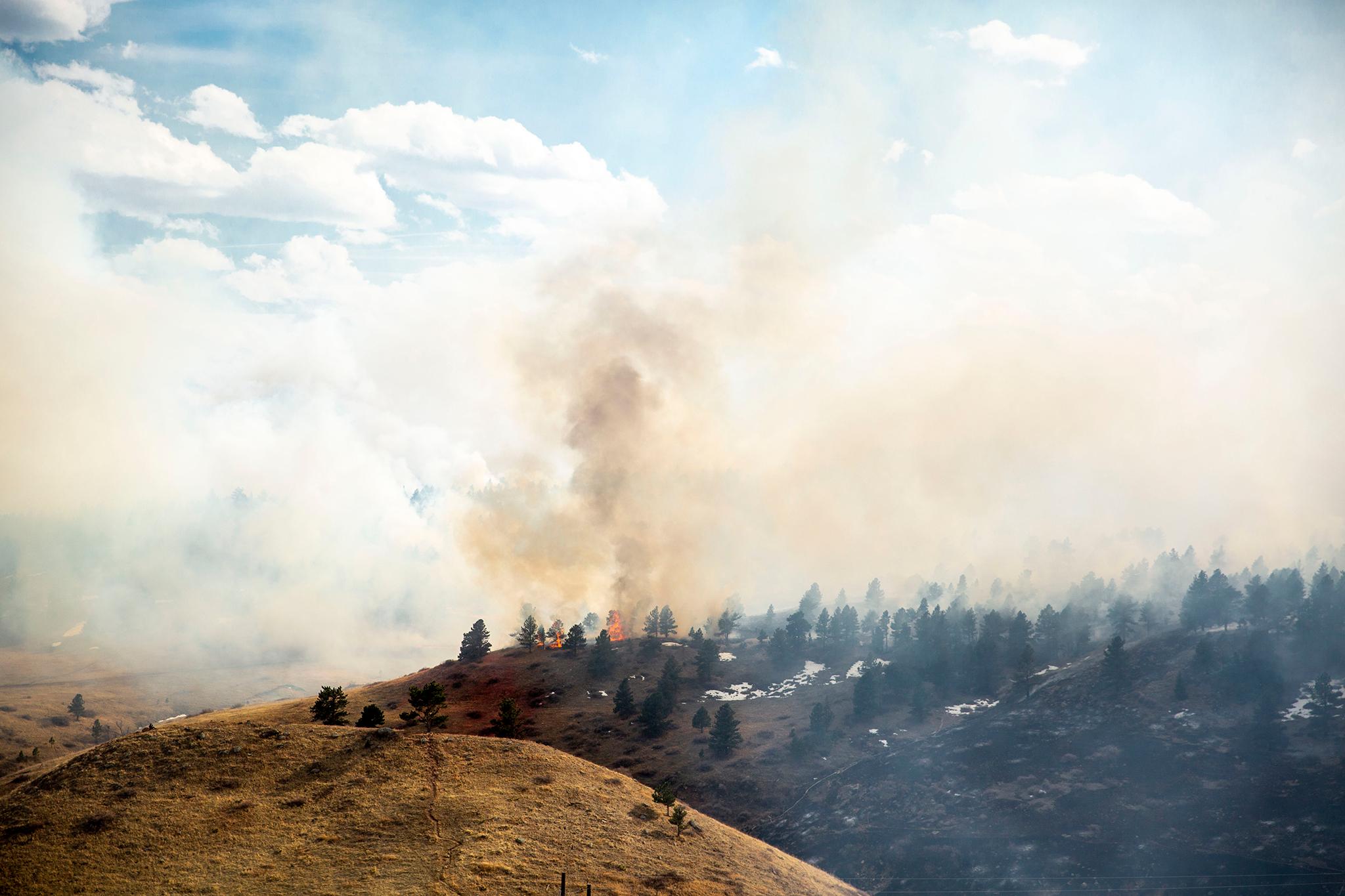
A bill that would add nearly $3 million to investigate fires around Colorado cleared the state legislature and was sent to Gov. Jared Polis for his signature.
The money will fund new tools for the state fire agency, including new equipment and an accelerant-detecting dog.
It also gives the state a pool of money from which to reimburse local fire agencies for investigations. Local sheriffs and fire departments are the lead investigators for fires in their jurisdiction, not on federal land.
The bill, two years in the making, was prompted by a 2021 CPR News investigation, that found many local law enforcement agencies lack trained wildfire investigators, and Colorado ranked as the worst state in the west in the number of large wildfires where a cause and origin could not be identified.
“As we face an increase in devastating wildfires,” said state Rep. Tammy Story, a Jeffco Democrat and the bill’s sponsor, at a House committee hearing last month. “It is crucial that we increase funding to investigate these occurrences, combat their potential destruction, and ultimately safeguard the wellbeing of our communities.”
Story noted that Colorado in 2020 had more than 1,000 fires that engulfed more than 600,000 acres, yet the state has only one certified fire investigator, relying instead on federal and local investigators to determine cause and origin.
“I had no idea there was just one investigator,” replied state Rep. Barbara McLachlan, D-Durango, who said she supported the bill. “It's kind of a no-brainer.”
State fire officials told committee members the money would allow them to add a second accelerant sniffing dog for the Western Slope and a second “investigations trailer.”
The bill gives the state the resources to quickly secure the starting location of a fire — accessing and preserving evidence at the scene is crucial for determining a cause.
There’s often a delay in getting heavy equipment to the scene, said Chris Brunette, Section Chief at Colorado Division of Fire Prevention & Control, Fire & Life Safety Section at the April committee hearing.
“Which oftentimes means waiting and continuing to secure the scene until we can get that equipment,” he said. “So this will give us that opportunity to get that larger equipment, like a backhoe.”
The state can now also reimburse local agencies for fire investigations, which officials hope will foster more intergovernmental assistance.
“So we would really like to incentivize the continued assistance of local jurisdictions to their partner jurisdictions,” said Brunette at the April hearing. “But right now they do that at the cost of their own taxpayers.”
Other states, like Utah, have a state fire team, with about a dozen investigators and a supervisor, who can assist local law enforcement. Utah ranks as one of the best states at determining the causes of wildfires.
At a committee hearing on the bill back in March, state Sen. Dylan Roberts, a Democrat representing mountain counties, highlighted CPR News’ reporting, and Colorado’s record on holding fire starters accountable.
"I think this all got kinda kicked off a year or so ago, there was a CPR article about the lack of fire investigations in Colorado and how poorly we ranked compared to other states,” Roberts said.
Most fires are human-caused and knowing the exact ignition source, especially as fires become bigger and more destructive due to climate change, is key to preventing fires in the first place.
“It is so important to learn from our mistakes, and try to prevent these from happening in the future,” Roberts said.
The bill requires the state to report annually the number and status of fire investigations the state is involved in.
Gov. Polis’ office said he plans to sign the bill.
The near-total lack of current state resources for fire investigations won over even some skeptical Republicans.
“We continue to expand the size of government, scope of government and the cost of government,” said Republican state Rep. Richard Holtorf of Akron at the April committee hearing. “However, in this case, this is probably one of those things that we need to invest in. There's a hundred other things that I can think of that we don't need to, but this is one thing that I think we do need to.”








